Although the earliest citation in OED for 'spear-carrier' in the transferred sense of "(a) orig. Theatr. slang, an actor with a walk-on part" (OED) is from a 1960 New Yorker article,
1960 New Yorker 13 Aug. 97/1 The ‘Quartet’ is full of characters who in one novel may seem irritatingly superfluous spear-carriers,..but who in the ‘Quartet’ turn out to be members of a literary repertory company.
op. cit.
and so agrees with dating from other sources, the OED and other sources are contradicted by much earlier appearances of the term used in the general sense of 'walk-on bit part player', in the late 19th century.
Some of the examples I will cite may arguably be seen as more-or-less literal uses describing players who carried a spear, for example,
Johnson...made a precarious living as evangelist, spear-carrier in opera....
"Jack Johnson Dies in Auto Crash; Ex-Heavyweight Champion Was 68", New York Times, 1946.
and the earliest attestation I found,
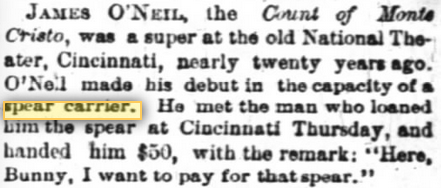
The Courier-Journal (Louisville, Kentucky), 29 Dec 1883 (paywalled link).
The attestations in total, however, suggest the the transferred sense conveyed by 'spear-carrier' was a metaphorical description of the role of the 'supernumerary' in theater. The clippings shown below (all links paywalled) trace that transference of sense through the final two decades of the 19th century. The evidence they provide is supplemented by an intertwining of references to supernumeraries (aka 'supers' and 'supes') as bit players who 'carry a spear' during approximately the same time period, but first appearing somewhat earlier (1871).
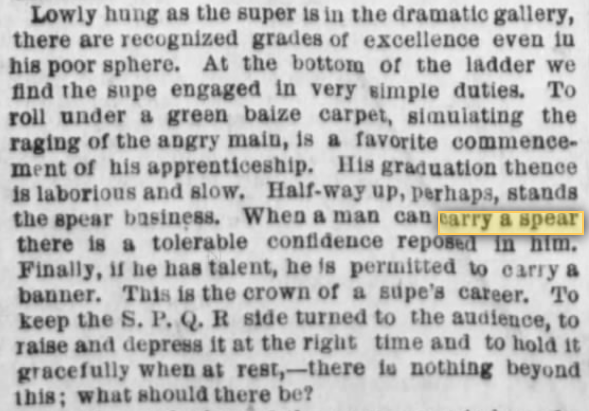
The Evening Telegraph (Philadelphia, Pennsylvania), 30 Jun 1871.

Chicago Daily Tribune (Chicago, Illinois), 15 May 1885.
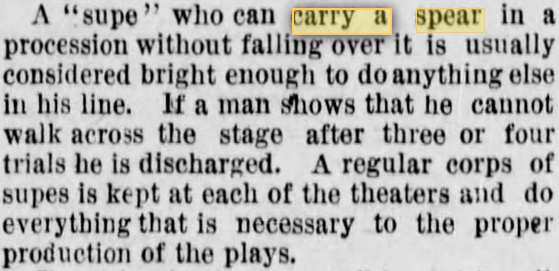
The Des Moines Register (Des Moines, Iowa), 24 Jun 1888.
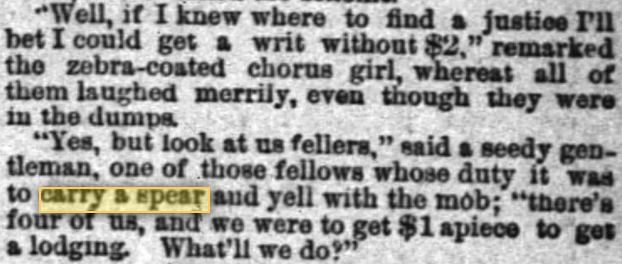
The Inter Ocean (Chicago, Illinois), 08 Apr 1888.
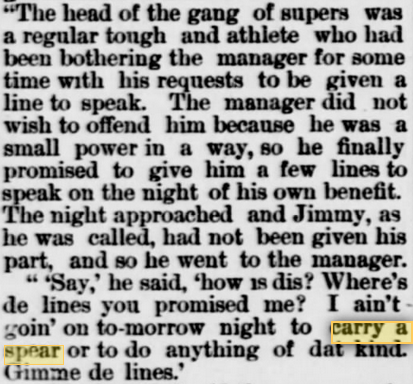
The Morning Astorian (Astoria, Oregon), 04 May 1890.
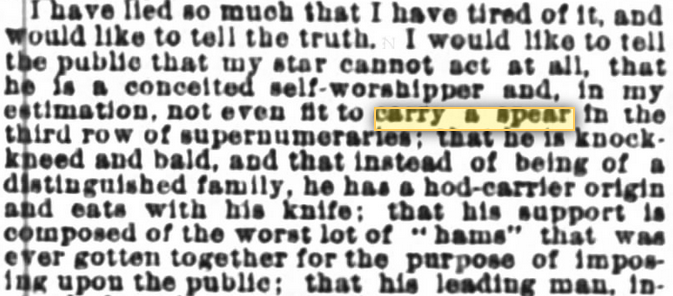
The New York Times (New York, New York), 13 Sep 1891.

The Cincinnati Enquirer (Cincinnati, Ohio), 23 Dec 1893.

The Cincinnati Enquirer (Cincinnati, Ohio), 27 Aug 1894.

The Inter Ocean (Chicago, Illinois), 15 Jun 1895.
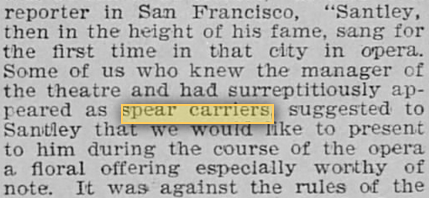
The Salt Lake Herald (Salt Lake City, Utah), 30 Aug 1896.
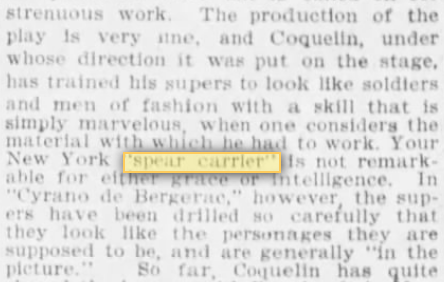
The Pittsburgh Press (Pittsburgh, Pennsylvania), 16 Dec 1900.
The evidence given above compellingly dates the origin of the term 'spear-carrier' in the transferred sense to the late 1800s. Two trends in the history are especially noteworthy:
- Early uses of the term are not invariably references to bit players in opera, but more generally, are references to theatrical bit players in any type of production.
- Early references to actors who 'carry a spear' with contextual mention of theatrical 'supernumeries' are gradually supplanted, most noticably in the 1890s, by references to 'spear-carriers', without the former contextual mentions of 'supernumeraries'. That trend continues into the 1900s.
Answering your question about the relative increase or decrease in the use of the term 'spear-carrier' over time is quite beyond the reach of my resources and enterprise. A proper answer would have to take account of proportionality: as a proportion of theatrical writing or speech, then, the increase or decrease in the use of 'spear-carrier' is opaque without significant labor and the employment of collocation data that has not yet, so far as I know, been marshalled for such purposes.












